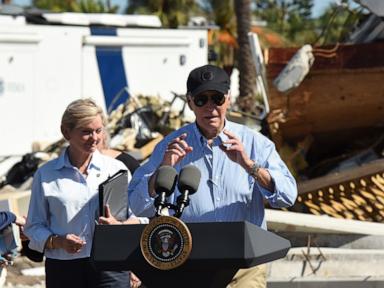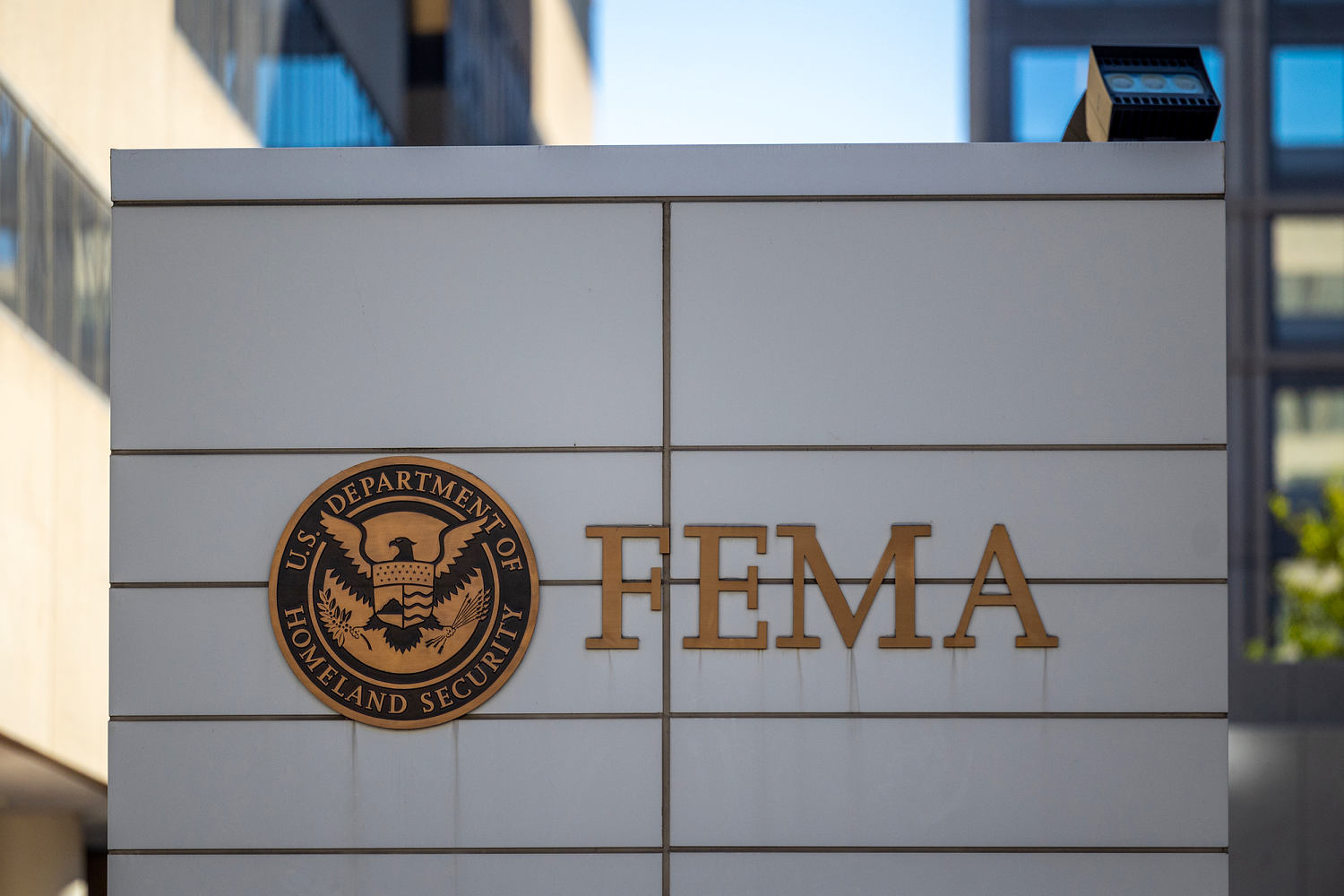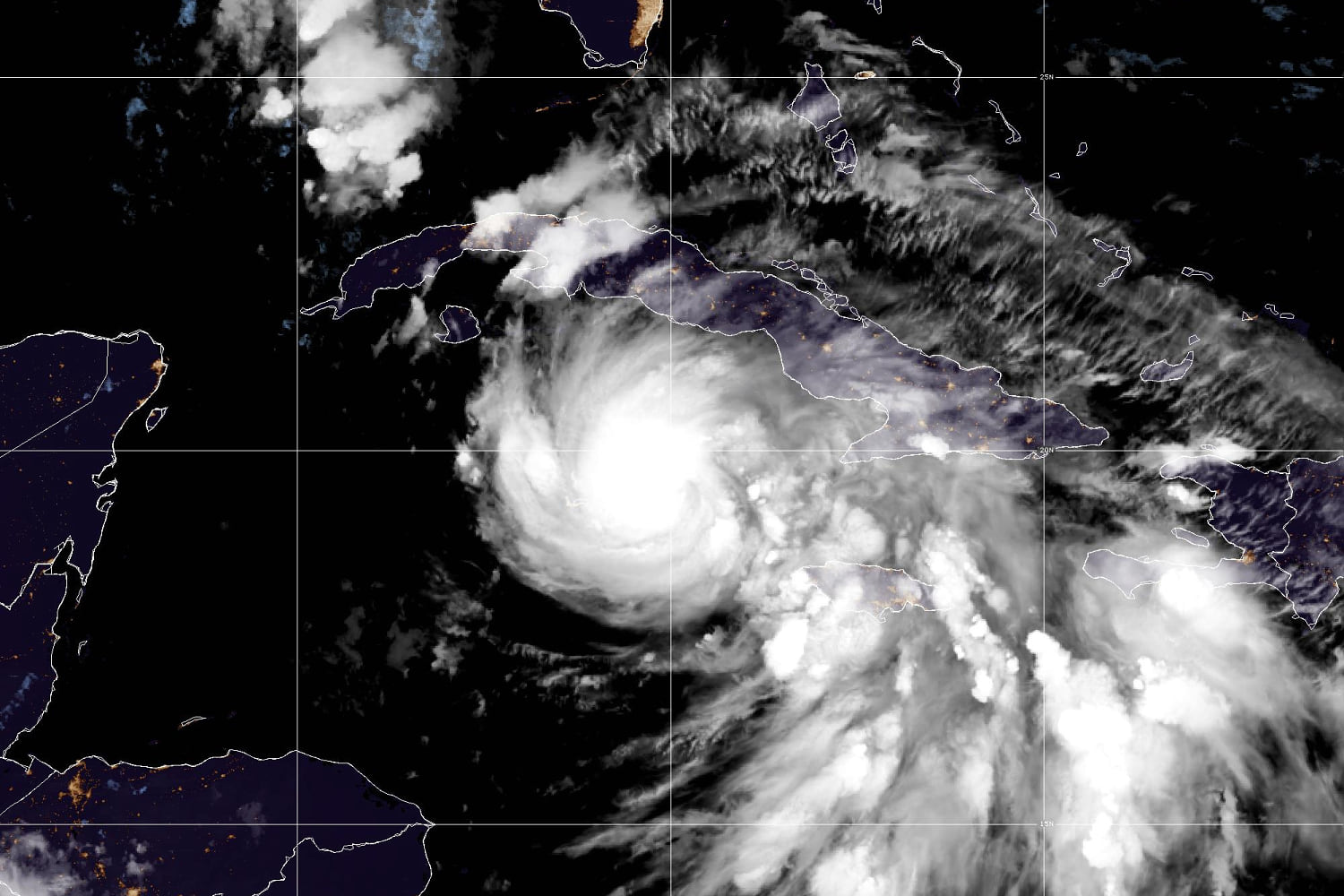FEMA disaster relief fund 'rapidly nearing exhaustion'

The Federal Emergency Management Agency’s (FEMA) disaster relief fund has dwindled to less than $5 billion, lawmakers said this week, as both sides press for the swift passage of emergency aid.
FEMA Administrator Deanne Criswell warned Wednesday that the agency’s ability to respond to new disasters “could be jeopardized” without further funding from Congress.
“In just one month, we saw over 2.4 million households register for assistance, breaking records set during previous catastrophic storms,” Criswell said, adding that FEMA has already provided “more than $7.8 billion in federal assistance for hurricanes Helene and Milton.” The administrator said the figure includes $3 billion for individual assistance and $1.7 billion for public assistance.
Criswell also pointed to other needs beyond the relief fund, including the National Flood Insurance Program, which she said is experiencing “tremendous strain with nearly 74,000 claims filed following Hurricane Helene and Milton amounting to $843 million.”
Criswell was among a list of Biden administration officials who testified before the Senate Appropriations Committee as part of a broader hearing on Wednesday that also included testimonies from Transportation Secretary Pete Buttigieg and Small Business Administration Administrator Isabel Guzman.
Deputy secretaries at the departments of Agriculture and Housing and Urban Development, Xochitl Torres Small and Adrianne Todman, respectively, also testified, as well as Sens. Jon Ossoff (D-Ga.) and Thom Tillis (R-N.C.).
The hearing comes after the Biden administration recently called on Congress to approve nearly $100 billion in emergency funding for disaster relief efforts weeks after the devastation wrought by hurricanes Helene and Milton.
Lawmakers on both sides of the aisle have pressed leadership to move quickly to bring up legislation to provide critical aid to regions hit hard by the disasters. However, it’s unclear how quickly Congress will move to address the funds, particularly as lawmakers also contend with a looming Dec. 20 deadline to prevent a government shutdown.
House Appropriations Chair Tom Cole (R-Okla.) told reporters earlier this week that “there's obviously a need,” adding: “I hope we can get this done before the end of this calendar year.”
Pressed on whether it will move as an individual bill or attached to a potential stopgap government funding measure, also known as a continuing resolution (CR), to stave off next month’s shutdown, Cole said on Wednesday, “It could either be an individual bill, it could easily be attached to a CR if we're going to do that.”
Sen. Susan Collins (Maine), the top Republican on the Senate Appropriations Committee, said at the beginning of the hearing on Wednesday that there was less than $5 billion left in the disaster relief fund.
“Every state in the nation has had a disaster declared in recent years and has relied on FEMA for response and recovery, including several Maine communities affected by last year's winter storms,” she said, adding the disaster relief fund is “rapidly nearing exhaustion.”
The administration’s request includes a $40 billion ask, the largest line item in the request, to ensure the fund “has sufficient funding to address expected disaster costs” through fiscal 2025.
The White House asked for $24 billion for the Department of Agriculture to support farmers “that experienced crop or livestock losses” due to hurricanes and other natural disasters, as well as aid for “rural infrastructure repair” and grants for nutrition and food assistance programs like the Special Supplemental Nutrition Programs for Women, Infants, and Children.
The request also calls for billions in funding for the Department of Housing and Urban Development (HUD) to address damage caused by the recent hurricanes and what the White House detailed as “unmet disaster recovery needs” for multiple states and territories from major disasters in 2023 and 2024.
Additional items in the request include a call for $2 billion for a key federal program that provides disaster loans to businesses and homeowners, and $8 billion to rebuild and repair highways, bridges and roads in regions “seriously damaged by natural disasters or catastrophic failures from external causes.”
During the hearing, Buttigieg said recovery from Hurricane Helene “alone will require extensive ongoing investment to permanently rebuild the roads and bridges destroyed by the storm,” while noting “unmet need for recovery” in states like Alaska, Hawaii, Maryland and Nevada that qualify for funding for transportation infrastructure.
“With each passing day, we are growing closer to a situation where this department will not be able to provide even partial funding for eligible projects,” he said.
Todman also said that, without the requested $12 billion for HUD requested through the president, the “homes of thousands upon thousands of Americans will never be rebuilt, and their communities will have a housing shortage ... that they've never seen before.”
“We have a moral obligation to protect people,” she said. “It takes four years from the point of an event for there to be housing substantially built after a disaster. That is far, far too long.”
Lawmakers from hard-hit states are also dialing up the pressure, though the request’s size is not lost on others.
Tillis said on Wednesday that he “fully” backs the administration’s request for $100 billion, but quickly added “that's only the beginning.”
“We've got to react differently to storms. This may be the first, but it won't be the last like we've seen in North Carolina, and we owe it to the American people to be ready to do better,” Tillis said.
Rep. Mario Diaz-Balart (R-Fla.), who heads the funding subcommittee that oversees dollars for the State Department, said on Tuesday, however, that he thinks the request could “probably be pared down a bit, quite a bit.”
While he didn’t give a dollar amount when pressed by reporters, he did note there's a part of the request “that my subcommittee deals with, and I think part of that can be pared down or potentially done in the regular process.”
But he noted that there are “other parts that may not.”
Topics
-

Biden asks Congress for $100B in disaster relief funding
Politics - The Hill - 2 days ago -

Biden to send Congress an emergency funding bill for disaster relief
Top stories - ABC News - 3 days ago -

Biden to send disaster relief funding package to Congress in coming days
Politics - The Hill - 3 days ago -

FEMA employee fired after advising disaster relief team not to visit homes with pro-Trump signs
Top stories - NBC News - November 10 -

Watch live: Buttigieg, Criswell testify on FEMA funding
Politics - The Hill - Yesterday -

Oversight panel presses FEMA administrator on hurricane relief discrimination allegations
Politics - The Hill - Yesterday -

Rafael makes landfall in Cuba as a Category 3 hurricane
Top stories - NBC News - November 7 -

Watch live: House Oversight Committee looks into FEMA disaster response
Politics - The Hill - Yesterday
More from The Hill
-

12:30 Report — Trump's embattled nominees
Politics - The Hill - 27 minutes ago -

Gaetz withdraws from attorney general consideration
Politics - The Hill - 32 minutes ago -

For Iran, disinformation comes just behind assassination
Politics - The Hill - 33 minutes ago -

Jussie Smollett conviction overturned by Illinois Supreme Court
Politics - The Hill - 42 minutes ago -

Trump Cabinet picks: Here’s who’s on the list to carry out his agenda
Politics - The Hill - 1 hour ago